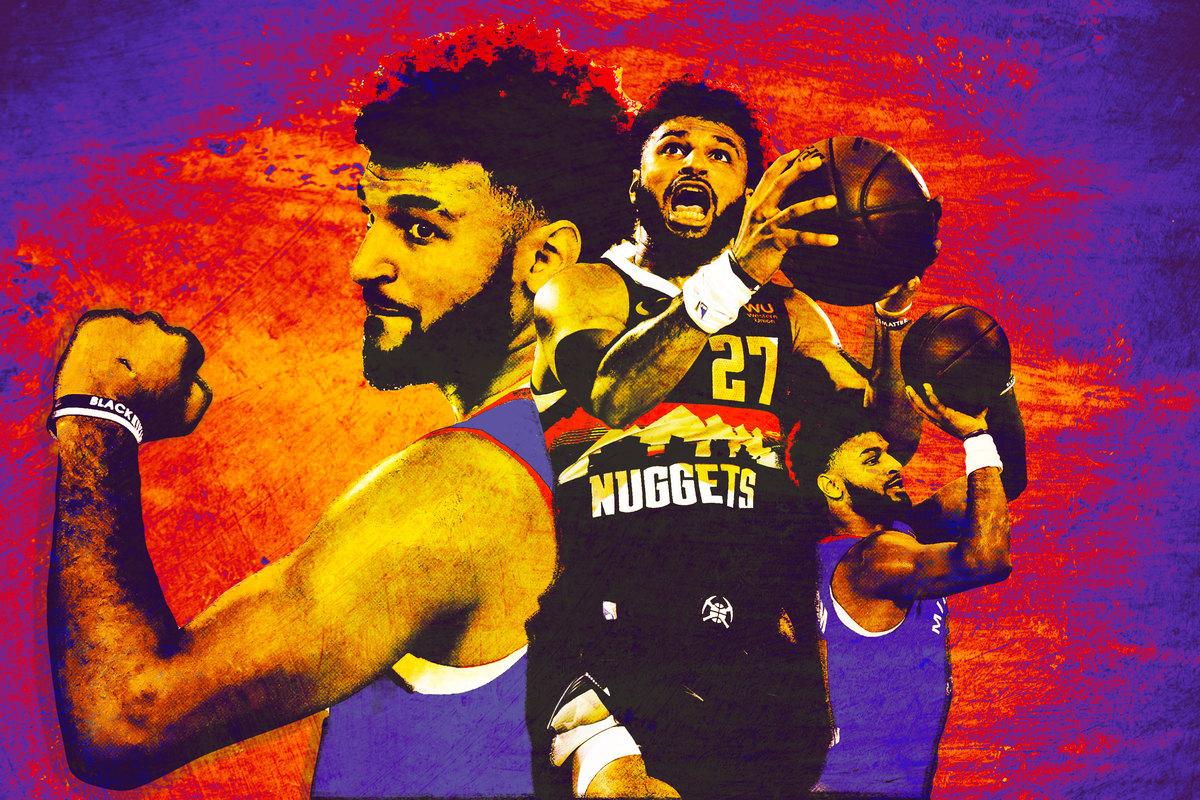
The dust is still settling from a truly stunning playoff result. The Denver Nuggets came back from 3-1 down for the second time this postseason, erasing double-digit deficits in each of the last three games against an opponent many considered a title favorite with the most talent in the league.
According to the Inpredictable in-game win probability model, the Nuggets’ advancement chances dropped to 0.2 percent at their nadir in Game 5, then to 0.4 percent during Game 6, and 8.1 percent during Game 7. Yet they came back once, and twice, and a third time, and now they’re on to the franchise’s first conference finals since 2009. The poor Clippers still haven’t made a conference finals appearance in franchise history.
From the Clippers’ perspective, the result is a calamity, no ifs, ands, or buts. But for Denver, the team’s play ever since falling behind against Utah in the first round, most ignominiously via a 124-87 shellacking in Game 3, reflects its promise for both the remainder of these playoffs and the future. The Nuggets have two transcendent young stars and a budding supporting cast; here are the three pillars of their comeback.
Jamal Murray, Superstar in Waiting
Murray scored 40 points in Game 7, including 20 in a swashbuckling second quarter that saw the fourth-year guard outscore the Clippers 11-4 by himself in the last few minutes before halftime. Added to his trio of scoreboard explosions against Utah—50 points in Game 4, 42 in Game 5, 50 in Game 6—this Game 7 showing moves Murray into rarefied territory.
Murray now has four games this postseason with 40-plus points. Only 12 other players have done so in one postseason; they’re all either in the Hall of Fame already or LeBron James:
- Elgin Baylor in 1961
- Wilt Chamberlain in 1962
- Jerry West in 1965 and 1969
- Rick Barry in 1967
- Kareem Abdul-Jabbar in 1977
- Bernard King in 1984
- Michael Jordan in 1989, 1990, 1992, and 1993
- Hakeem Olajuwon in 1995
- Shaquille O’Neal in 2000
- Allen Iverson in 2001
- Kobe Bryant in 2009
- LeBron James in 2009 and 2018
- Jamal Murray in 2020
And although some of the inconsistency that plagued Murray in the 2019 postseason has still come to bear, both his ceiling and floor have lifted since then—and also since this regular season. Murray averaged 18.5 points per game this regular season, and he’s up to 27.1 so far in the playoffs, giving him one of the largest scoring boosts in playoff history. Appearing on any list near Baylor, West, King, and Abdul-Jabbar—and playoff legend Glen “Big Baby” Davis—is quite the accomplishment.
Largest Points Per Game Improvement in the Playoffs (Min. 10 Games)
Now, Murray gets to prepare for a matchup against a defensively stout Lakers squad that nonetheless struggles at times to contain high-profile guards. He could well add to his totals soon.
Nikola Jokic, Superstar Already
At full strength, the Clippers should have formed a frenetic defense—Kawhi Leonard, Paul George, Patrick Beverley, and more switching and sliding into holes and stymieing offensive systems with their speed and range. They never reached that level, in part due to communication lapses and a lack of cohesion, and also in part because Jokic completely dismantled all coverages thrown his way.
By the end of the third quarter in Game 7, Jokic had already recorded a triple-double; he finished with an unprecedented stat line of 16 points, 22 rebounds, and 13 assists. The Clippers kept sending double-teams at maybe the best-passing big man in league history, and he kept finding the open man and using feints and sleight of hand to bend the defensive rotations where he wanted. He was the best player in a series with Leonard, a two-time Finals MVP, and not by a small margin either.
While Murray scores with the greats, Jokic tallies equally rare multi-category contributions. Here’s the full list of players to average at least 25 points, 10 rebounds, and five assists per game in a playoff campaign (minimum 10 games):
- Oscar Robertson in 1963 (32, 13, and 9)
- Kareem Abdul-Jabbar in 1972 (29, 18, and 5)
- Larry Bird in 1984 (27, 11, and 6)
- Charles Barkley in 1986 (25, 16, and 6)
- Bird in 1987 (27, 10, and 7)
- LeBron James in 2015 (30, 11, and 8)
- Blake Griffin in 2015 (26, 13, and 6)
- Nikola Jokic in 2019 (25, 13, and 8)
- Jokic in 2020 (25, 11, and 6)
- James in 2020 (27, 10, and 9)
Jokic is one of just three players, along with James and Bird, to accomplish this feat twice, and one of just seven to accomplish it at all. He’s also in just his second postseason, and 25 years old. His costar, Murray, is just 23.
Rapid Defensive Improvements
Even beyond the breakouts on offense, the Nuggets burst back against both the Jazz and Clippers because of their play on the other end of the court. They started from about the lowest point imaginable. Through four games against the Jazz, the Nuggets were allowing 131.1 points per 100 possessions; for reference, that’s 15 points higher than the Mavericks, who sported the most efficient offense in league history, scored this season.
But in the 10 games since falling behind 3-1 to the Jazz, Denver’s defensive rating is a much more respectable 107.1—a mark that would have ranked fifth or sixth in the regular season. And much of that performance came against the Clippers, who boasted the second-best offense in the regular season and torched Dallas in the first round.
Some of that improvement comes from a key personnel change. Early against Utah, Denver clearly missed the injured Gary Harris and Will Barton, who ranked first and third on the team, respectively, in defensive value this season, according to FiveThirtyEight’s RAPTOR metric. Barton is still out, but Harris returned in Game 6 against Utah. Individual defensive rating is a noisy stat, but it sure doesn’t seem like a coincidence that the playoff Nuggets have allowed just 106.3 points per 100 possessions with Harris on the court, versus 117.0 with him off.
Harris’s return helped in two ways. First, he added another capable defender to the rotation, meaning that with Harris, Paul Millsap, Jerami Grant, and Torrey Craig, the Nuggets could always play at least three reliable defenders who don’t need the ball around Jokic and Murray. And the ensuing domino effect meant Michael Porter Jr. could come off the bench and play more of his minutes against inferior opponents, which allowed him to score while not giving up just as many buckets to the likes of Leonard and George on the other end.
Some of the Clippers’ offensive malaise was their own doing. Denver missed some rotations; the Clippers responded by helpfully missing open shots. No amount of defensive intensity can explain that across games 5, 6, and 7, the Nuggets outscored the Clippers 181-117 in the second half; that’s an average margin of 60-39.
But player by player, the Nuggets’ starters stood their ground against a more talented Clippers unit. Grant, for instance, was the main defender on Leonard in the series, and when they matched up, Leonard shot just nine free throws versus 59 field goals. That’s a free throw rate of 15 percent; for reference, Leonard’s free throw rate was 35 percent in the regular season, 42 percent against the Mavericks in the first round, and 44 percent last postseason. In Game 7, Leonard didn’t shoot a single free throw—or, in the fourth quarter, score any points at all.
Whether the Nuggets’ star power and newfound defensive purpose can propel them through another round, against another favored opponent, remains a question. The Lakers are better rested, with two shinier stars and more playoff experience; our Restart Odds think the Lakers are 75 percent favorites to advance to the Finals. But Denver has overcome significantly steeper odds twice already this postseason; what’s another upset for a team on this kind of rollicking run? And if the Lakers take control of the series early and race to a 3-1 lead, well, then the Nuggets will have them right where they want.

